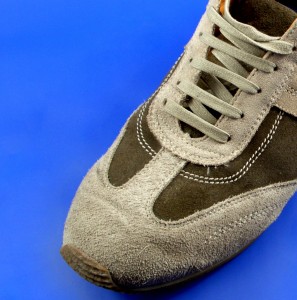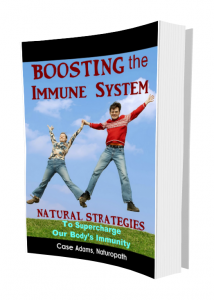Too Much Exercise Without Recovery Reduces Immunity
Exercise is one of the best ways to prevent many disorders. But too much exercise without adequate recovery leads to a weakened immune system according to researchers.
In this article
Multiple studies test exercise and immunity
Russian researchers concluded from a large review of multiple human trials that strenuous exercise will reduce immune function. Furthermore, they found that competitive athletes and others who work out strenuously require more dietary nutrients.
Multiple studies over the past two decades have confirmed that too much exercise hurts the immune system by depleting both cellular and humoral immunity. The line has been drawn on what is now being termed as “over-training” or “strenuous exercise” as opposed to “moderate exercise.”
The research has confirmed that levels of available white blood cells (leukocytes) and cytokines – the immune system’s messenger system – are depleted by overtraining.
A few of the important immune cells and cytokines depleted by overtraining include T-cells, IL-1, IL-8, IL-2, IL-10, IL-6 and TNF (tumor necrosis factor). T-helper cells have also been found to be a key depletion factor.
The depletion of tumor necrosis factor brings up the topic of whether exercise reduces the risk of cancer, or better. After all, cancer relates directly to immune function.
Does Exercise Help Prevent Cancer or Mortality?
A new study from the National Cancer Institute and National Institutes of Health analyzed 45 studies between 1950 to 2011 that followed cancer and exercise. They correlated cancer survivorship with physical exercise. They found that the results were marginal: There seems to be some benefit derived from exercise for breast cancer and colon cancer survivorship. But not much benefit has been observed from other types of cancers. The researchers stated:
“There was consistent evidence from 27 observational studies that physical activity is associated with reduced all-cause, breast cancer-specific, and colon cancer-specific mortality. There is currently insufficient evidence regarding the association between physical activity and mortality for survivors of other cancers.”
Yes, this seems to fly in the face of the common supposition that exercise helps prevent cancer and encourages longer survival for cancer victims.
This doesn’t mean that moderate exercise is necessarily bad for cancer, however. Especially when nutrition is carefully managed.
Research published this past March from Serbia studied this effect, as it followed 18 female breast cancer survivors. The study found that daily moderate exercise (21 minutes of aerobic bicycle ergometer) for three weeks increased levels of VO2max, which has been associated with increased immune function.
But what is the role of nutrients? The new Russian study suggests that strenuous exercise simply requires more nutrients to replace those lost during exercise. Their findings were that because exercise requires increased amounts of nutrients due to the increased metabolism, those nutrients must be replaced to prevent immune system deficiencies.
The researchers stated:
“Although athletes need to eat a well-balanced basic diet, there are several nutritional factors that are difficult to obtain at a sufficient level from a normal diet since athletes require more nutrients than the recommended daily allowances. Thus, appropriate nutrition enrichment of special products and food supplements containing proteins, amino acids, carbohydrates, vitamins, minerals, antioxidants, probiotics is an essential prerequisite for effective improvement of athletic performance, recovery from fatigue after exercise and ward off immunodeficiency.”
This is consistent with other research showing that athletes respond positively to nutrient supplementation.
The T-helper Cell Connection
Research from South Africa’s Technikon Pretoria, suggests that T-helper lymphocytes are especially compromised during extreme exercise training, such as that undertaken by marathoners. The researchers found that marathoners tend to suffer from a higher risk of upper respiratory tract infections between three and 72 hours after a race. Their research found that this seems to relate to an imbalance between T-helper cells.
The result they found was that T-helper2 cell levels were stimulated with exercise, which decreased T-helper1 cells and created a loss in cell-mediated immunity.
As the Russian researchers found, this imbalance in T-helper cells can be mitigated by increasing levels of nutrients – especially antioxidant nutrients and phytonutrients – through diet or supplementation. This has been shown to be linked to the fact that overtraining produces an inflammatory metabolic state, and the increased nutrients are needed to provide co-factors that neutralize radicals formed during strenuous exercise.
These elements – the nutrient content as indexed against whether the exercise is too strenuous – appear to be critical factors for doctors’ and patients’ consideration when determining what kind and how much exercise should be recommended.
Another consideration is that one person’s strenuous workout can be moderate exercise for a more fit person. This relativity requires that each person and/or their health professional carefully assess their level of fitness, and try to keep their exercise within the moderate zone.
It also appears appropriate that exercise – especially strenuous exercise – should be accompanied by wise nutrition and supplementation.
And for those competitive athletes training for racing or other types of athletic performances, it would seem that an extraordinary level of nutrition and supplementation is required to help prevent the loss of immune factors that could produce a proclivity towards disease.
A case in point is research showing that flavanols from foods help prevent colon cancer.And olives and olive oil helps prevent cancer of other types.
The research is illustrating that bottom line appears to be that moderate exercise is healthy, but strenuous exercise needs to be carefully managed with nutrition.
REFERENCES:
Trushina EN, Mustafina OK, Nikitiuk DB, Kuznetsov VD. Immune dysfunction in highly skilled athletes and nutritional rehabilitation. Vopr Pitan. 2012;81(2):73-80.
Gleeson M. Can nutrition limit exercise-induced immunodepression? Nutr Rev. 2006 Mar;64(3):119-31.
Ballard-Barbash R, Friedenreich CM, Courneya KS, Siddiqi SM, McTiernan A, Alfano CM. Physical activity, biomarkers, and disease outcomes in cancer survivors: a systematic review. J Natl Cancer Inst. 2012 Jun 6;104(11):815-40.
Lakier Smith L. Overtraining, excessive exercise, and altered immunity: is this a T helper-1 versus T helper-2 lymphocyte response? Sports Med. 2003;33(5):347-64.
Brdareski Z, Djurović A, Susnjar S, Zivotić-Vanović M, Ristić A, Konstantinović L, Vucković-Dekić L, Tankosić M. Effects of a short-term differently dosed aerobic exercise on maximum aerobic capacity in breast cancer survivors: a pilot study. Vojnosanit Pregl. 2012 Mar;69(3):237-42.
















